Night after night they have come into our living rooms – families living in cellars, children clutching treasured toys as they queue to flee their cities, old ladies trudging through streets strewn with corpses.
You watch in despair because there appears no alternative to the endless cycle of violence and misery.
And because it seems all the West is doing is seizing a few oligarchs’ yachts and pouring weapons into Ukraine like sweeties into a poke.
The UK recently pledged a further £1.3 billion of military pick and mix to go with the $24 billion pledged by the Group of Seven.
But is fighting a proxy war with Russia really the answer?
Instead of turning up the aggression, why don’t we just turn off the gas?
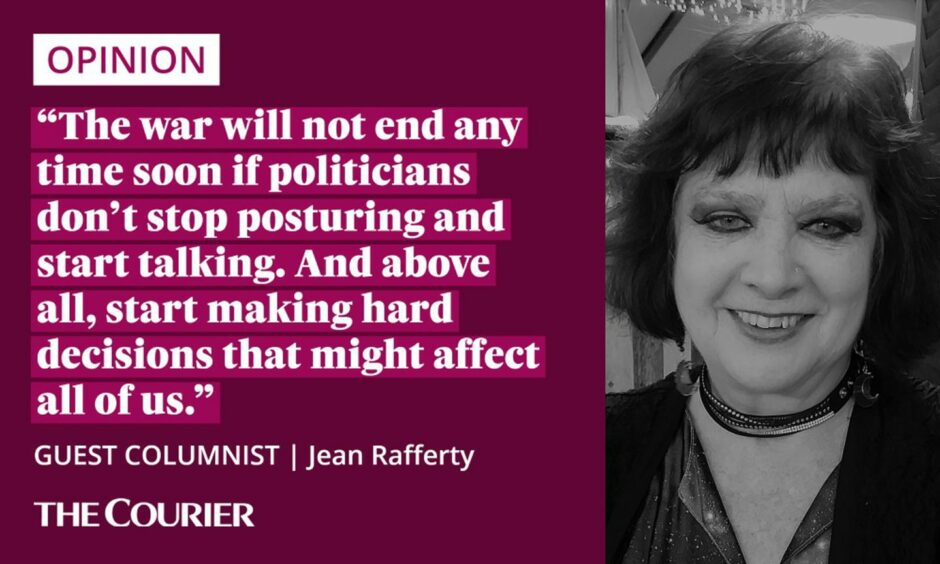
European Union leaders have only just agreed on a plan to block Russian oil imports that arrive by sea. Pipelines will remain open, following opposition from Hungary.
But European governments have tied themselves in knots trying to avoid upsetting their electorates by making a simple request – start rationing your energy so we can shorten the war in Ukraine.
Given ordinary people’s efforts on behalf of the Ukrainians, the politicians might be surprised at how the public would respond.
Energy rationing was a way of life before Ukraine invasion
Some years ago I went to Albania to do a workshop on reproductive health with journalists.
Under four decades of the presidency of Enver Hoxha, Albania had become isolated.
The dictator was so paranoid that he had towers built along the coast to repel attackers from the sea.
Modern contraception was not available to Albanian women because he wanted them to breed lots of sons to defend the country.
Valentina, who was organising the course, had arranged for me and a colleague to stay in a local flat.
It was a grim concrete block – even the wet room had a concrete floor though we didn’t use it much as you could only have showers between 6.30-7.30pm.
The lights often went out and if the building’s generator wasn’t working you sat in the dark or lit candles.
“I thought you’d like to see how the local people live,” said Valentina.
I wasn’t thrilled at the time as it got in the way of our preparations for the next day’s sessions.
But as it turned out, the best session was an impromptu one.
You see people you know die defending Ukraine, you hear ordinary people being killed, tortured, raped.
And then you read about European countries paying for Russian gas in rubles and saying that an oil embargo will hurt them, while arms shipments would provoke Russia…
— Oleksiy Sorokin (@mrsorokaa) May 26, 2022
And the experience has stayed with me ever since as a reminder that the world is not as we in the West think it is.
Did Edwina Currie have a point?
In other countries people live in shacks with a single bare lightbulb.
They go down to the British Council to access the internet because they don’t have a computer at home.
They might not have access to water or the heating we think of as essential.
Ask the people surviving in Ukraine right now – rationing energy is not the end of the world.
Having to watch your neighbours being blown to bits or your home crumble to dust is – watching a bit less television is not.
I watched an interviewee on the news talking about rising heating bills while wearing a short sleeved shirt in February. And it seemed to me there was a disconnect with reality.
Years ago Edwina Currie sparked outrage by advising pensioners to put on an extra jumper and wear a woolly hat in the house.
But we may all end up in beanies if we carry on using unlimited amounts of energy.
Our reliance on Russian energy goes on
Today’s politicians lack Currie’s brutal honesty. They prefer performance to practicality.
Emmanuel Macron flies to Russia to talk to Putin so he can look statesmanlike compared to Marine Le Pen.
Boris Johnson addresses the Ukrainian parliament to divert people’s attention from Partygate.
Our PM, the Ukrainians’ great champion, has pledged to cut off Russian gas.
But like most of the European Union, we won’t be turning off the tap any time soon.
That means months and months of weapons piling up in Ukraine, months and months more deaths – and years and years of our children paying for his largesse.
There are two ways this war will end – either with the unthinkable nuclear option or with negotiation.
The negotiation may not end as the West would wish, it may not even end fairly.
But the war will not end any time soon if the politicians don’t stop posturing and start talking.
And above all, start making hard decisions that might affect all of us.
I live on my computer but I would gladly use pen and paper if it meant saving one Ukrainian child, one old babushka.
I know I’m not alone in that. Why don’t our politicians feel the same?
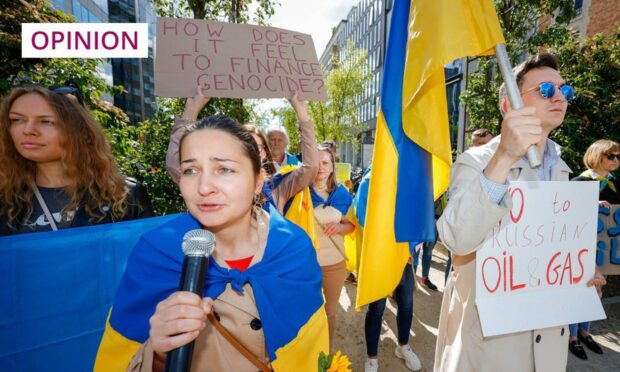
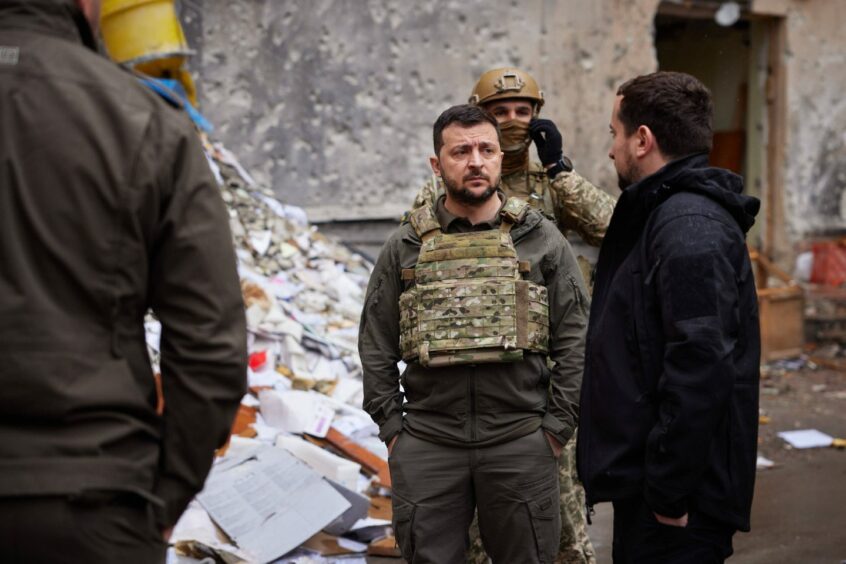
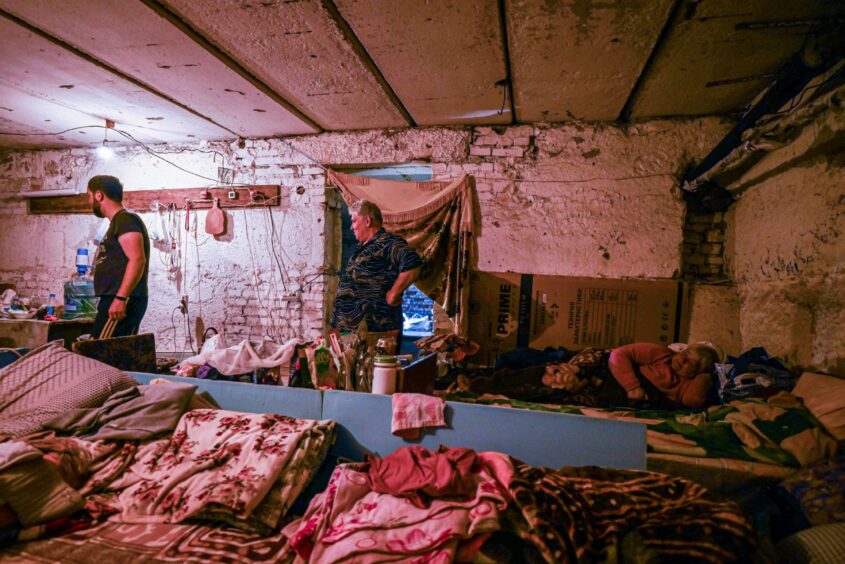
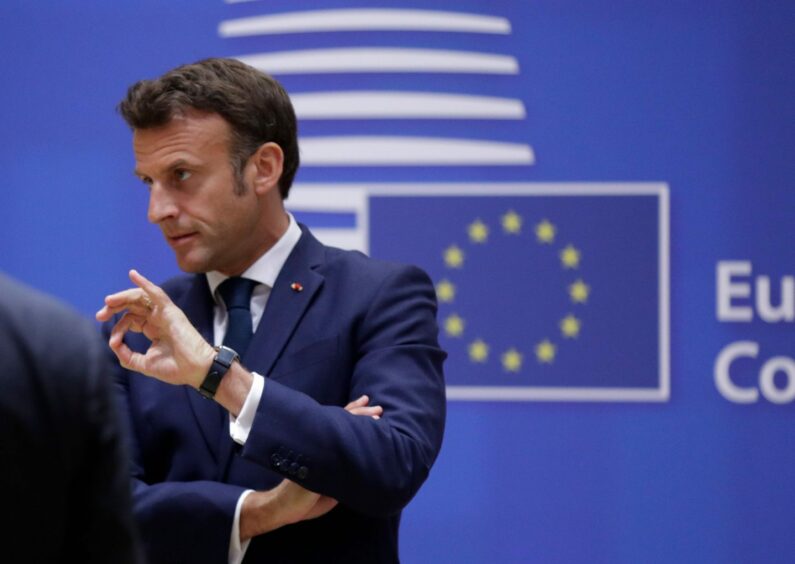










Conversation